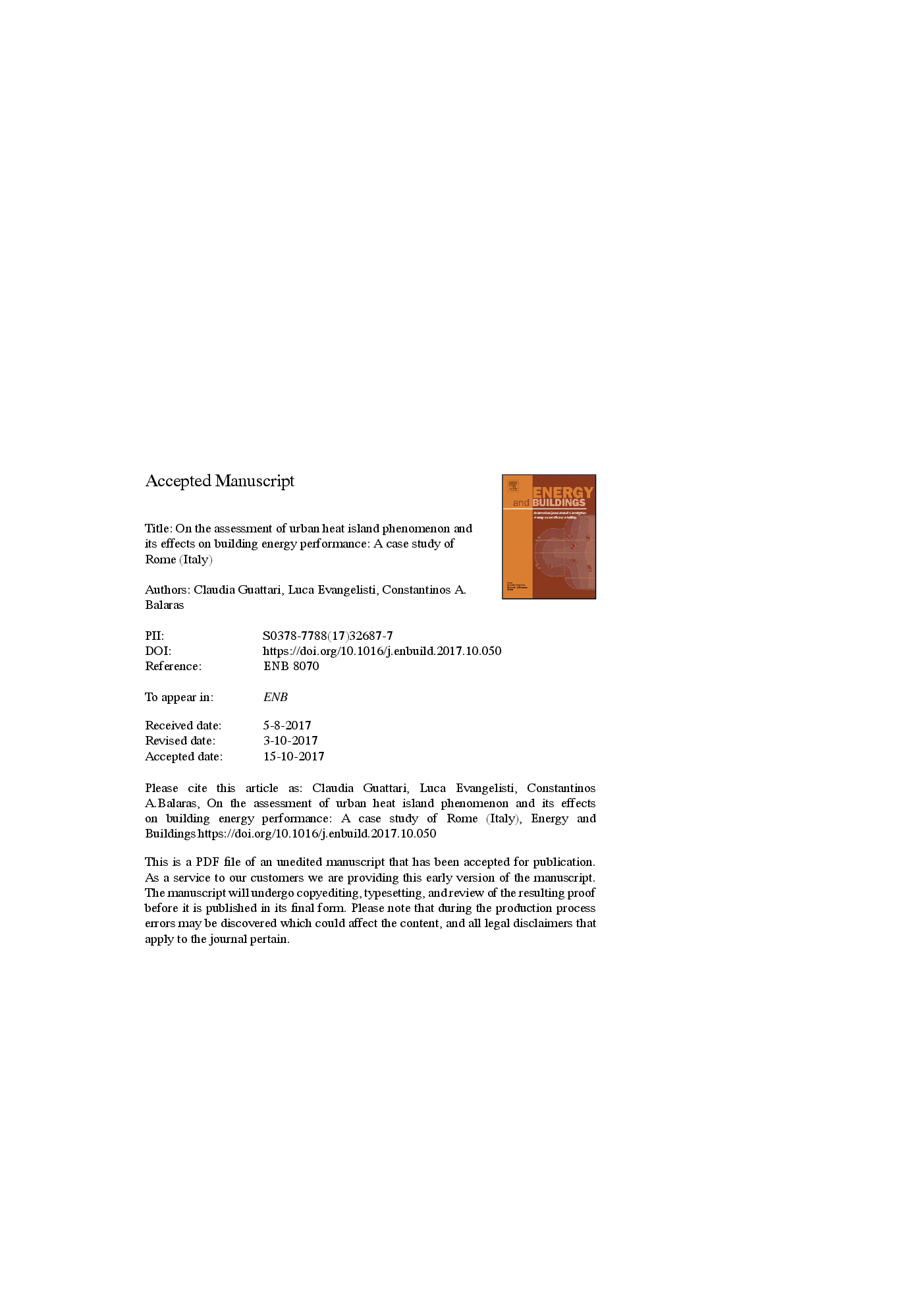ترجمه فارسی عنوان مقاله
در ارزیابی پدیده جزیره گرمایی شهری و تأثیر آن بر عملکرد انرژی ساختمان: مطالعه موردی رم (ایتالیا)
عنوان انگلیسی
On the assessment of urban heat island phenomenon and its effects on building energy performance: A case study of Rome (Italy)
| کد مقاله | سال انتشار | تعداد صفحات مقاله انگلیسی |
|---|---|---|
| 159773 | 2018 | 17 صفحه PDF |
منبع

Publisher : Elsevier - Science Direct (الزویر - ساینس دایرکت)
Journal : Energy and Buildings, Volume 158, 1 January 2018, Pages 605-615
ترجمه کلمات کلیدی
جزیره گرمایی شهری، داده های هواشناسی، شبیه سازی دینامیک، خنک کننده تابستان، گرمایش زمستانی، دمای هوا، رطوبت نسبی، سرعت باد،
کلمات کلیدی انگلیسی
Urban heat island; Weather data; Dynamic simulation; Summer cooling; Winter heating; Air temperature; Relative humidity; Wind velocity;

